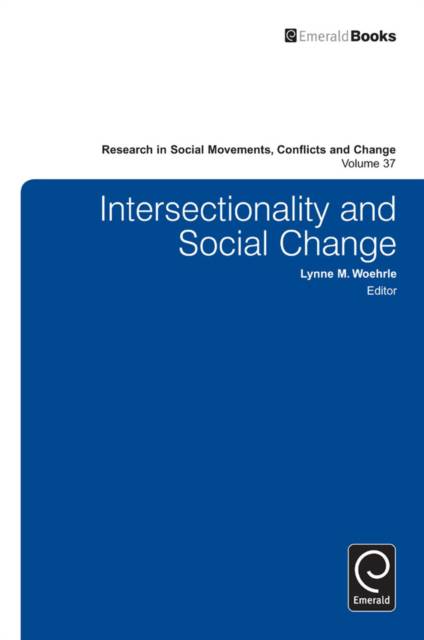
- Afhalen na 1 uur in een winkel met voorraad
- Gratis thuislevering in België vanaf € 30
- Ruim aanbod met 7 miljoen producten
- Afhalen na 1 uur in een winkel met voorraad
- Gratis thuislevering in België vanaf € 30
- Ruim aanbod met 7 miljoen producten
Zoeken
Intersectionality and Social Change
€ 149,45
+ 298 punten
Omschrijving
Volume 37 explores the question, what can the emerging discipline of intersectionality studies contribute to our quest to understand and analyze social movements, conflict and change? This collection is part of a continued broadening and deepening of the theoretical contributions of intersectional analysis in understanding social structures and human practices. It lends analytical eye to questions of how race, class, and gender shape strategy and experience in social change processes. It also stretches to include thinking about how analysis of age, religion, or sexual identity can influence the model. The papers contribute to our growing understanding of ways to use the social power analysis unique to the intersectional lens to offer new perspectives on well-researched questions such as group identity development in conflict, coalition organizing, and movement resonance. Through the intersectional lens questions often ignored and populations traditionally marginalized become the heart of the analysis. Additionally, the volume also considers how surveillance and information sharing shape the complex relationship between democratic freedoms and hegemonic governmental systems.
Specificaties
Betrokkenen
- Uitgeverij:
Inhoud
- Aantal bladzijden:
- 288
- Taal:
- Engels
- Reeks:
- Reeksnummer:
- nr. 37
Eigenschappen
- Productcode (EAN):
- 9781784411060
- Verschijningsdatum:
- 17/09/2014
- Uitvoering:
- Hardcover
- Formaat:
- Genaaid
- Afmetingen:
- 152 mm x 229 mm
- Gewicht:
- 557 g

Alleen bij Standaard Boekhandel
+ 298 punten op je klantenkaart van Standaard Boekhandel
Beoordelingen
We publiceren alleen reviews die voldoen aan de voorwaarden voor reviews. Bekijk onze voorwaarden voor reviews.










